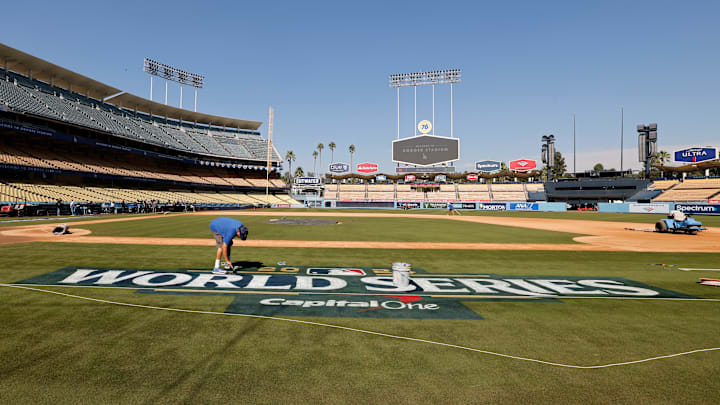Remember when everyone obsessed over Shohei Ohtani’s plane? You could practically hear the strains of “O, Canada” as buzz about the biggest signing in Toronto Blue Jays – not to mention baseball – history drew near. And then it all dissolved. Ohtani, of course, did not venture to Toronto; he instead signed with the Hollywood juggernaut, dashing the hopes of not only Jays fans but small-market teams across the sport.
Now, the World Series features two big-market teams, Ohtani’s Los Angeles Dodgers and blockbuster trade acquisition Juan Soto’s New York Yankees. Narratives about the age-old rivalry overlook the fact that since 2015, just five small-market clubs have made it to the Fall Classic and just two, the 2019 Nationals and 2015 Royals, have won it all. In the great American pastime, teams like the Cincinnati Reds can’t compete.
The 2024 World Series matchup sheds light on the growing disparity between big-market and small-market teams, like the Reds
Early projections indicate that the Reds aren’t going to be making earth-shattering financial moves any time soon, and the ongoing dispute regarding the team’s television home could impact Cincinnati’s bottom line. The Reds are already the team with the greatest number of sponsorship deals, but little of that seems to be reflected in the on-field product.
As contracts soar, the Reds are living into a world where one superstar costs as much as their entire infield. In fact, even on a day when Nick Martinez and Jeimer Candelario, the team’s biggest free-agent signings, suited up for Cincinnati in 2024, the entire starting lineup would only cost about $8.25 million more than Aaron Judge’s annual salary.
Star power for days 😳#WorldSeries pic.twitter.com/Njyfn4Xnwr
— MLB Network (@MLBNetwork) October 24, 2024
Of course, money doesn’t always buy success. Look at the Chicago Cubs, who broke open last winter’s spending spree by signing Shōta Imanaga to a deal that could be worth $80 million over five years. The Japanese standout put up amazing numbers, and Chicago still missed the playoffs.
It should be noted that half of this year’s postseason teams were small-market clubs, according to an annual valuation by Forbes. The Detroit Tigers, in particular, fit a mold that the Reds emulate: a fairly light-hitting team with homegrown electric pitching. Detroit did, however, choose to offload its star pitcher, Jack Flaherty, to (who else?) the Dodgers.
None of those small-market squads made it to the big show this year. So, here we are with yet another clash of the titans while the little guys stay home and wonder what, if anything, they can do to keep up with what seems to be a rising cost of entry to the World Series.
